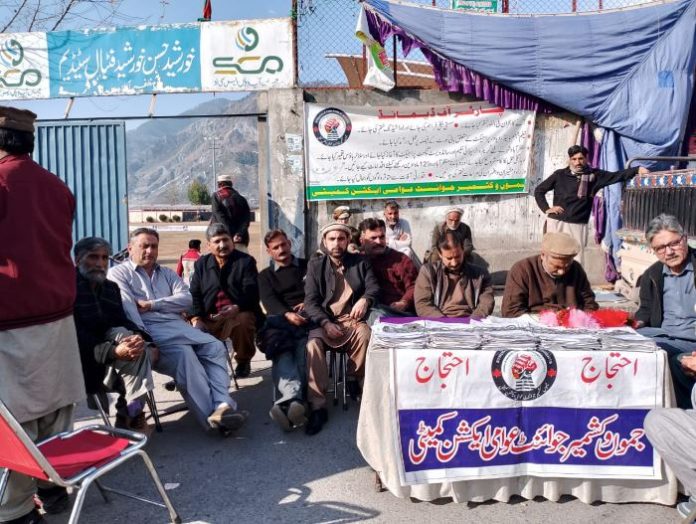In a striking display of discontent, the Joint Awami Action Committee of Pakistan occupied Jammu and Kashmir (POJK) has initiated a sit-in and civil disobedience movement in Muzaffarabad, POJK. The protest, aimed at addressing a comprehensive charter of demands, vows to continue until all concerns are met. Notably, the people of POJK are refusing to pay taxes or electricity bills as a part of their civil disobedience strategy.
The Joint Awami Action Committee had presented a well-articulated charter of demands months ago, yet the authorities in the illegal occupant Pakistan have failed to take any action. In October of the previous year, the committee issued a comprehensive charter of demand and devised a plan of action, leading to the initiation of widespread and unprecedented protests in the occupational history of POJK. And so the people from all walks of life, including women, students, and the elderly, took to the streets in a massive display of dissatisfaction. The complete shutdown during the protest highlighted the unwavering resolve of the people.
Of particular significance is the fact that for the past almost eight months, the residents of POJK have boycotted paying electricity bills, employing symbolic gestures such as creating paper boats out of the bills and organizing funeral processions for them. This collective act of defiance underscores the frustration of the people with the perceived lack of response from Pakistan and its puppet government in the region.
Realizing that their concerns are not being addressed, the people of POJK sent a clear message of detachment by observing February 5 as the Black Day, a departure from the traditional celebration of Kashmir Solidarity Day.
The civil disobedience movement, reminiscent of the Indian freedom struggle, represents the latest approach in the ongoing fight of POJK residents against what they perceive as Pakistani oppression.

